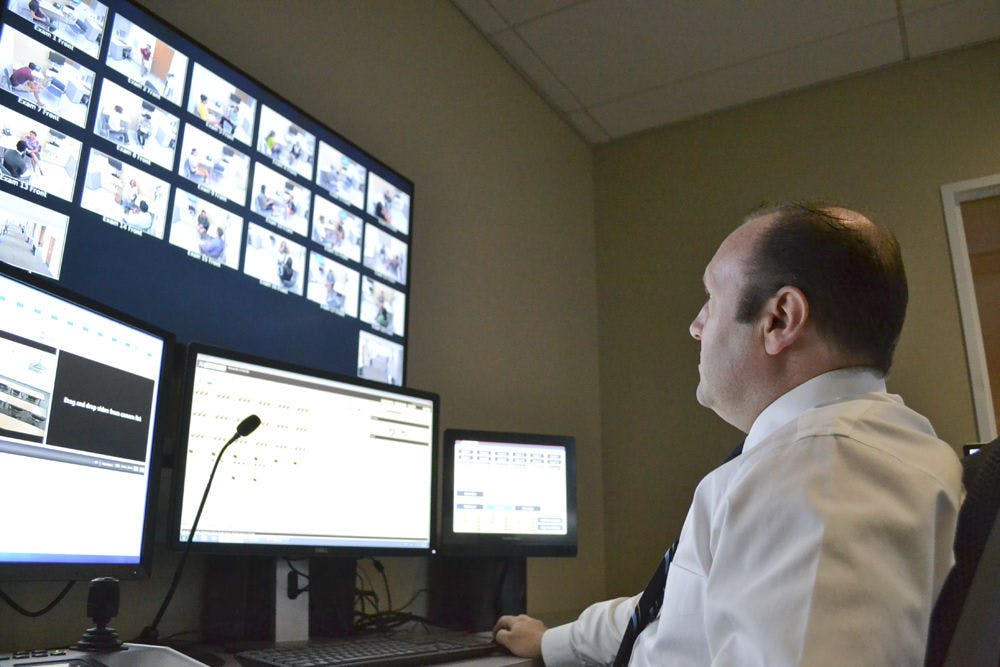Smoothing out their shirts, adjusting their stethoscopes and staying completely silent, UF first-year medical students wait for a sign from God.
"You may now start the station," said God, also known as Dan Pollock, the head information technology specialist at UF’s Anaclerio Learning and Assessment Center in the new George T. Harrell Medical Education building.
Dr. María Velazquez, director of the Harrell Professional Development and Assessment Center, jokingly calls Pollock "God" because his voice emanates from the speakers above, instructing students during their assignment.
Situated on the third floor of the Harrell Medical Education building, built in July near the McKnight Brain Institute, the medical students completed their first video-recorded examinations and interviews with standardized patients Friday. The volunteer patients act out symptoms and give feedback to the future doctors.
"I think once you’re in there talking with the (standardized) patient, it’s more comfortable," said Stephanie Socias, a first-year medical student. "It doesn’t seem so Hunger-Game-esque out here when you’re waiting,"
The 25-year-old is one of 135 first-year medical students who will participate in the examinations and interviews. There are two eight-minute long interviews that test communication skills and taking notes on a patient’s health history, Velazquez said.
The recent changes in the Medical College Admissions Test (MCAT) have included new sections in verbal communication skills, too, according to the Association of American Medical Colleges’ website.
"The whole thing is to make sure the students are going to leave medical school with everything that they need, not only to treat the patient, but also to communicate so they can help their patient," Velazquez said.
In Room 10, Samantha Smith sat as a standardized patient and complained about her head-and-neck area hurting. The medical student who came in to examine her had to give a diagnosis, using what he or she learned the week before.
Smith, a 27-year-old UF doctoral nursing student, began working as a standardized patient in Fall 2012. She said she has continued because she feels the encounters help students understand the patient’s experience.
"From talking down to being really open and sincere, it’s a great activity to understand the empathy between patient and doctor," Smith said. "You need to relate and communicate effectively with your patient to develop a relationship so they feel comfortable talking."
UF’s standardized patient program is the oldest in the state and has become the "mother" for programs in other colleges of medicine, Velazquez said.
The Anaclerio Center houses 18 exact replicas of patient exam rooms and two hospital rooms, making it the first of its kind in the nation, she said.
"We are making history as we speak," Velazquez said.
Contact Danielle Veenstra at dveenstra@alligator.org and follow her on Twitter @_Veenstra_
Dan Pollock, the head internet technician at the Anaclerio Learning and Assessment Center, gazes upon 18 screens streaming live footage of first year medical students interacting with volunteers acting as patients Aug. 28, 2015. Pollock’s voice, jokingly called the voice of “God,” can be heard in the halls of the center instructing students during their lesson.
Dr. Maria Velazquez, director of the Harrell Assessment Center, explains to a group of first year medical students how to complete their first video recorded assignment Aug. 28, 2015.






